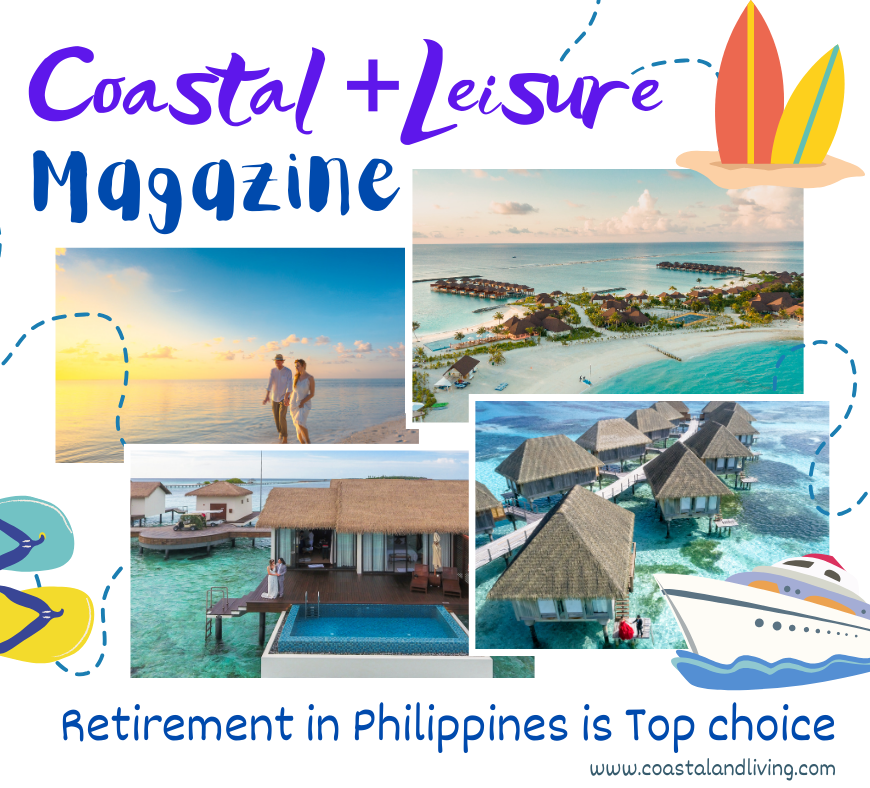Top 5 Citizenship by Investment Programs for Entrepreneurs in 2025

You’re building a global business. And borders? They’re getting in your way.
Whether it’s visa restrictions slowing down expansion, tax inefficiencies eating profits, or simply wanting a Plan B for your family—entrepreneurs need mobility. Real mobility. The kind that lets you operate anywhere without asking permission.
That’s where citizenship by investment programs come in.
These aren’t just passports. They’re business tools. Strategic assets that give entrepreneurs access to markets, talent, and opportunities that would otherwise take decades to unlock. And in 2025, the landscape has gotten both more competitive and more sophisticated.
But here’s the thing: not all programs are created equal. Some offer incredible tax benefits but limited travel access. Others provide visa-free entry to 150+ countries but come with hefty price tags and long processing times.
So which programs actually make sense for entrepreneurs? Let’s break down the top five options that deliver genuine value for business builders.
What Makes a CBI Program Good for Entrepreneurs?
Before diving into specific programs, it helps to understand what actually matters.
Processing speed is crucial. When business opportunities emerge, waiting 18 months for citizenship isn’t practical. The best programs process applications in 3-6 months, letting entrepreneurs move quickly on opportunities.
Global mobility determines which markets remain accessible without visa hassles. Programs offering access to Schengen, UK, and major business hubs provide the most flexibility for deal-making and expansion.
Tax efficiency varies dramatically between programs. Some jurisdictions impose zero global income tax, while others maintain complex tax obligations that require careful planning.
Business environment matters too. Can you actually establish operations there? Open bank accounts? Hire talent? The administrative reality often differs from marketing promises.
Due diligence has intensified across all programs. OECD and FATF standards now apply universally, meaning thorough background checks are standard. Anyone with complex business structures or international dealings should expect scrutiny.
1. St. Lucia: The Fast-Track Option
St. Lucia has quietly become one of the most efficient programs in the Caribbean. Processing times average 3-6 months, and the government bond route offers entrepreneurs a low-risk entry point.
Investment starts at roughly $100,000 for donations, $200,000 for real estate, or the government bond option. The bond route particularly appeals to risk-averse business owners who want capital preservation alongside citizenship benefits.
The business investment route lets entrepreneurs direct capital into local enterprises. This creates genuine economic activity while securing citizenship—a model that’s proven more sustainable than pure donation-based programs.
Tax treatment is straightforward: zero global income tax, no wealth taxes, no inheritance taxes. For entrepreneurs with international revenue streams, this eliminates significant compliance burdens.
Visa-free access covers 140-145 countries, including Schengen and UK. That’s sufficient for most business travel needs, though Asia-Pacific access remains limited compared to European alternatives.
Banking access has improved significantly. Digital transformation within St. Lucia’s CBI unit has streamlined both application processing and subsequent financial services for new citizens.
One practical consideration: while St. Lucia’s program moves quickly, it’s still relatively young compared to established alternatives. The long-term stability isn’t yet proven through decades of operation.
2. Antigua & Barbuda: The Business-Focused Choice
Antigua & Barbuda explicitly encourages entrepreneurial investment through its business route. This program allows direct investment in local enterprises that create jobs, making it attractive for founders planning Caribbean expansion.
Minimum investment starts at $100,000 for single applicants through the National Development Fund, with real estate options from $200,000. Processing typically takes 3-5 months, making it one of the faster routes available.
The business-friendly environment extends beyond the CBI program itself. Access to the Caricom market opens regional opportunities, and the international financial services sector provides robust infrastructure for global operations.
Visa-free access exceeds 150 countries, covering Schengen, UK, and select Asian and African markets. This makes it viable for entrepreneurs with genuinely global operations.
Real estate investment offers a secondary benefit: rental income potential. Tourism infrastructure in Antigua supports strong vacation rental markets, turning the citizenship investment into an income-generating asset.
The residency requirement is minimal—just five days over five years. This flexibility suits entrepreneurs who need citizenship for mobility but maintain operations elsewhere.
Due diligence is thorough. Antigua’s government reviews applications with strict background assessments, which actually strengthens the program’s international reputation. Enhanced compliance has improved acceptance at major banks and institutions worldwide.
3. Grenada: The US Market Gateway
Grenada stands apart with one unique feature: eligibility for the US E-2 treaty investor visa. This is massive for entrepreneurs targeting American markets.
The E-2 visa enables residence and business operations in the United States—something no other Caribbean program offers. For founders planning US expansion, this single benefit justifies the entire investment.
Investment requires $150,000+ for National Transformation Fund donations or $220,000+ for real estate. Processing takes 6-9 months, slightly longer than alternatives but acceptable given the US market access.
Business formation is straightforward, with support for international structures. The absence of worldwide income, wealth, or inheritance taxes keeps compliance simple while protecting entrepreneurial profits.
Visa-free access covers 140-145 destinations, including China and Russia. This makes Grenada particularly useful for entrepreneurs operating in emerging markets where other Caribbean passports face restrictions.
Political stability has remained consistent, an important factor for long-term planning. Real estate investments also benefit from steady tourism growth, providing both citizenship and potential investment returns.
The practical reality: most entrepreneurs choosing Grenada do so specifically for US market access. If American expansion isn’t in your plans, other programs may offer better value. But for US-focused founders, Grenada is unmatched.
4. St. Kitts & Nevis: The Established Standard
St. Kitts & Nevis operates the longest-running CBI program globally. That history brings proven stability and consistent policy—crucial factors when making multi-generational decisions.
Investment options include Sustainable Growth Fund donations (approximately $250,000 for families) or real estate ($200,000 minimum). Processing averages 4-6 months, among the fastest in the region.
The program’s longevity has created extensive international acceptance. Banks, institutions, and immigration authorities worldwide recognize St. Kitts & Nevis citizenship, reducing friction in subsequent dealings.
Tax treatment mirrors other Caribbean options: zero income, wealth, or inheritance taxes. But the well-established financial services sector provides more sophisticated planning options than newer programs.
Visa-free access exceeds 150 countries, covering Europe, UK, and select Asian markets. Business travel rarely encounters restrictions, and the passport enjoys strong diplomatic relationships globally.
Modernized e-government services have kept the program competitive despite its age. Digital applications and streamlined processing match or exceed newer programs.
For entrepreneurs seeking citizenship by investment programs with proven track records, seeking guidance from experienced advisors like https://globalresidenceindex.com/ ensures optimal program selection and smooth application processing. Their expertise in navigating established programs like St. Kitts & Nevis helps entrepreneurs avoid common pitfalls while maximizing benefits.
One consideration: St. Kitts & Nevis has occasionally adjusted program terms in response to market conditions. While changes have been reasonable, entrepreneurs preferring absolute policy stability may find this unsettling.
5. Malta: The European Premium Option
Malta offers something fundamentally different: full EU citizenship. The ability to live, work, and operate business anywhere in the EU/EEA creates opportunities no Caribbean program can match.
However, Malta’s program faces ongoing EU scrutiny. Availability in 2025 should be verified directly—regulatory pressures have repeatedly threatened continuity. This uncertainty is significant.
If active, investment requirements approximate €600,000-€750,000 plus property purchase or rental. Processing requires 12-36 months, dramatically slower than Caribbean alternatives. This timeline makes Malta impractical for entrepreneurs needing quick mobility solutions.
The business environment, though, is exceptional. Malta’s corporate tax regime ranks among the EU’s most favorable. Access to the Single Market, strong fintech sector, and developed startup ecosystem provide genuine operational advantages.
Visa-free access exceeds 185 countries—among the highest globally. This includes US, Canada, Schengen, and markets where Caribbean passports face restrictions.
Banking and legal infrastructure operates at European standards. For entrepreneurs building international businesses requiring sophisticated financial services, Malta’s ecosystem exceeds Caribbean alternatives.
Due diligence is the strictest in the industry, reflecting full EU compliance standards. Background checks are exhaustive, and complex business histories may face extended scrutiny.
The reality: Malta works for specific entrepreneur profiles—those who can afford the premium, accept the timeline, and specifically need EU market access. For most entrepreneurs, Caribbean programs offer better value and practicality.
Making the Right Choice
None of these programs is universally “best.” The right choice depends entirely on specific business needs, timeline requirements, and budget constraints.
Fast-moving entrepreneurs often prioritize processing speed, pointing toward St. Lucia or Antigua & Barbuda. Those targeting US markets should seriously examine Grenada’s E-2 treaty benefits. Founders wanting maximum global acceptance might prefer the established reputation of St. Kitts & Nevis.
Tax optimization matters differently for each business. While all Caribbean programs offer zero global income tax, actual benefits depend on existing residency, business structure, and revenue sources. Professional tax planning should precede any citizenship decision.
Family considerations add complexity. Spouse and dependent inclusion is possible across all programs, but fees vary significantly. Multi-generational planning might prioritize programs with proven longevity and straightforward renewal processes.
Due diligence has intensified everywhere. All major programs now align with OECD and FATF standards, meaning thorough background checks are standard. Entrepreneurs with complex business structures, prior regulatory issues, or international dealings should expect scrutiny and prepare comprehensive documentation.
Banking access varies in practice despite similar stated benefits. Some Caribbean programs face greater friction at major international banks, while established programs maintain smoother relationships with financial institutions.
Practical Next Steps
Research should extend beyond marketing materials. Examining actual processing times, recent legislative changes, and current bank acceptance rates provides crucial reality checks on official claims.
Professional guidance matters enormously in this space. The regulations are complex, requirements change frequently, and mistakes can result in application delays or rejections. Expert advisors with direct government relationships can navigate these complexities efficiently.
Pre-screening before formal applications helps identify potential issues early. Many programs now offer preliminary checks that flag problems before significant fees are invested—a worthwhile precaution for complex cases.
Document preparation takes longer than most expect. Gathering, translating, and certifying required materials often becomes the longest phase of application processes. Starting early prevents timeline surprises.
Alternative programs exist beyond these five. Dominica, Vanuatu, and Turkey offer distinct advantages for specific situations—lower costs, Asia-Pacific access, or unique market positioning. They may suit entrepreneurs with focused needs but generally provide less comprehensive benefits for global business operations.
The citizenship by investment landscape continues evolving. Programs adjust requirements, governments change policies, and international acceptance shifts. What works optimally today may not represent the best choice in 12 months. Staying current with developments helps entrepreneurs make informed decisions.
Final Thoughts
Citizenship by investment represents a significant commitment—financially, administratively, and strategically. For entrepreneurs building global businesses, though, the benefits often justify the investment many times over.
The right program eliminates visa restrictions holding back expansion. It creates tax efficiencies that compound annually. It provides security and optionality for both business and family. And it opens doors that would otherwise remain permanently closed.
But rushing the decision rarely makes sense. These programs require careful evaluation against specific business goals, thorough due diligence on personal eligibility, and realistic assessment of timeline requirements. The entrepreneurs who benefit most are those who treat citizenship acquisition as a strategic business decision, not an impulse purchase.
The programs outlined above represent the most competitive options for entrepreneurs in 2025. Each offers distinct advantages depending on individual circumstances. With proper research, professional guidance, and realistic expectations, citizenship by investment can become one of the highest-ROI decisions a global entrepreneur makes.
The post Top 5 Citizenship by Investment Programs for Entrepreneurs in 2025 appeared first on Entrepreneurship Life.












